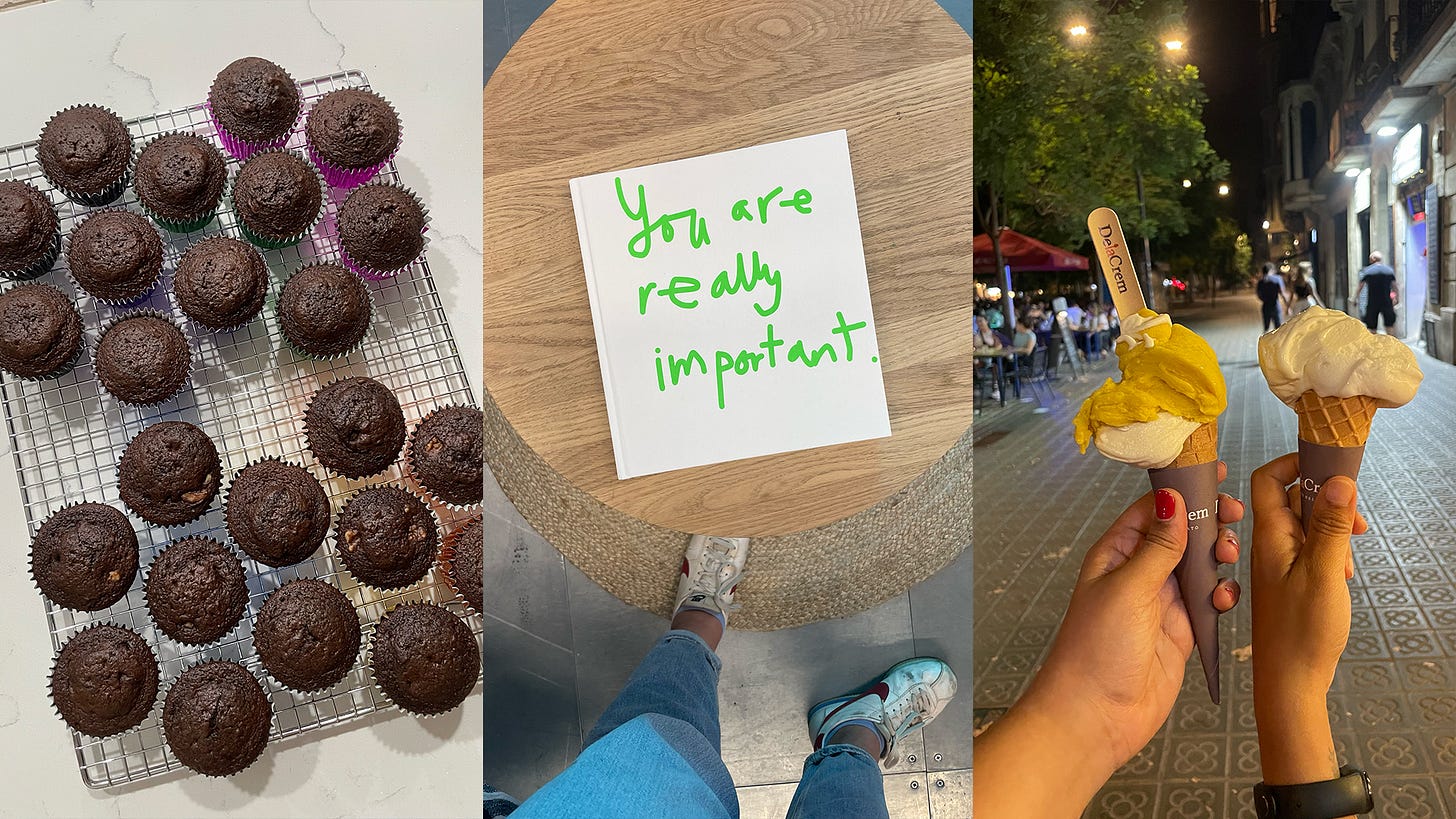Is there a good way to say goodbye?
Asking for a friend.
For as long as I can remember, every time I leave home, my mother makes me fresh dosas with molagapodi. It doesn’t matter if it’s morning, afternoon, evening, or even the middle of the night—it’s never up for discussion. It never has been. I don’t necessarily associate dosas with goodbyes, but I do associate leaving home with eating them. It’s a quiet goodbye ritual my mother and I share, knowing that we will be seeing each other again. In Tamil, when you leave, you say poita varein, which translates to I will go and come back. Goodbyes are always marked with a return—something I find deeply comforting.

Familial goodbyes are always harder because of the deep biological bond. While physical separation is inevitable, my mother always says that my brother and I will remain a part of her, no matter the distance of countries and time zones between us. And even though my brother and I have spent more than half our lives on opposite ends of the world, our goodbyes are often marked by a long, silent drive to the airport.
Goodbye rituals are intrinsic to humankind.
The etymology of goodbye itself from God be with ye is a way of sharing good luck for the next phase. Traditionally, they were extended affairs filled with celebrations and gatherings. Elders would give blessings, stories would be shared, songs sung, and dances performed—sometimes even gifts were exchanged. A distilled version of these rituals in modern society is what we now know as farewell parties!
If you pay close attention, you'll realize we say goodbye more often than we think—whether to people we see regularly or those we meet only occasionally. Some goodbyes are more poignant and painful, while others are easier. In most cases, it depends on the depth and intensity of the relationship or the situation.
I remember our school farewell parties—celebrations of the time we had spent together. As a batch of 240 students, there was no way to eventually keep in touch with everyone. So, we wrote our goodbyes on each other’s school uniforms, filled out slam books to remember one another, took countless photographs, and cherished long hugs. That goodbye meant stepping straight into the unknown.
Technology, however, has come a long way since then. When we said our goodbyes in school twenty years ago, none of us imagined we’d still be able to stay connected and have such deep insight into each other’s life decades later. Email, social media, and global internet connectivity have blurred the very meaning of goodbye. Most of my closest friends and I now live in different countries, yet we still know what’s happening in each other’s lives—thanks to instant messaging, video calls, and social media algorithms that keep us looped in.
So, when you meet in real life once a year or two but are always connected, what does it even mean to say goodbye? Is it really goodbye at all?

While I have strong goodbye rituals within my immediate and extended family, I’ve never really thought about the goodbye rituals outside of it. How do you say goodbye to a friend you may not see for years? How do you say goodbye to a friendship that no longer serves you? How do you say goodbye to a relationship that cannot be pursued, even when you’re deeply in love? How do you say goodbye to a place you’ve always called home?
Like a school farewell party or a goodbye hug, this ambiguous loss marks a significant chapter in our lives. Yet, unlike school farewells, they often lack any formal goodbye rituals in modern society.
We talk about the parting of people, places, and situations, but we rarely discuss the aftermath—unless the goodbye involves death. When my aunt passed away a few years ago, we honoured her beautiful life with final rites. Death comes with immense grief and a deep-seated shock, but it was all shared together as a family. The whole ritual and after period felt like a massive, ongoing hug that kept us going. But I’ve never had that kind of closure for a chosen goodbye—to a friendship, a relationship, or even a place. The emotional weight lingers long after the moment of parting. How do I say goodbye? Is there a grieving ritual? Do you exchange letters? Keep mementos? Again, is there ever a good way to say goodbye?
Many of these are, in fact, meaningful goodbyes. Some of my best experiences have come from the goodbyes I’ve had to say. Those difficult transitional phases—when pivotal people left —shaped me into who I am today. Holding space for discomfort, uncertainty, and grief is an essential part of saying goodbye. For me, these goodbyes often act as catalysts for personal growth. I’ve learned so much about myself through each one. And if I never said goodbye, I wouldn’t have the opportunity to say hello to something new.
To me, the hardest and perhaps my favourite part of saying goodbye is the space between what was and what will be.
To say goodbye is to be in transition. Onto the next.






Which is why in so many cultures “until we meet again” has s the goodbye
This took me on a journey thinking about my own goodbyes. Such a wonderful read!